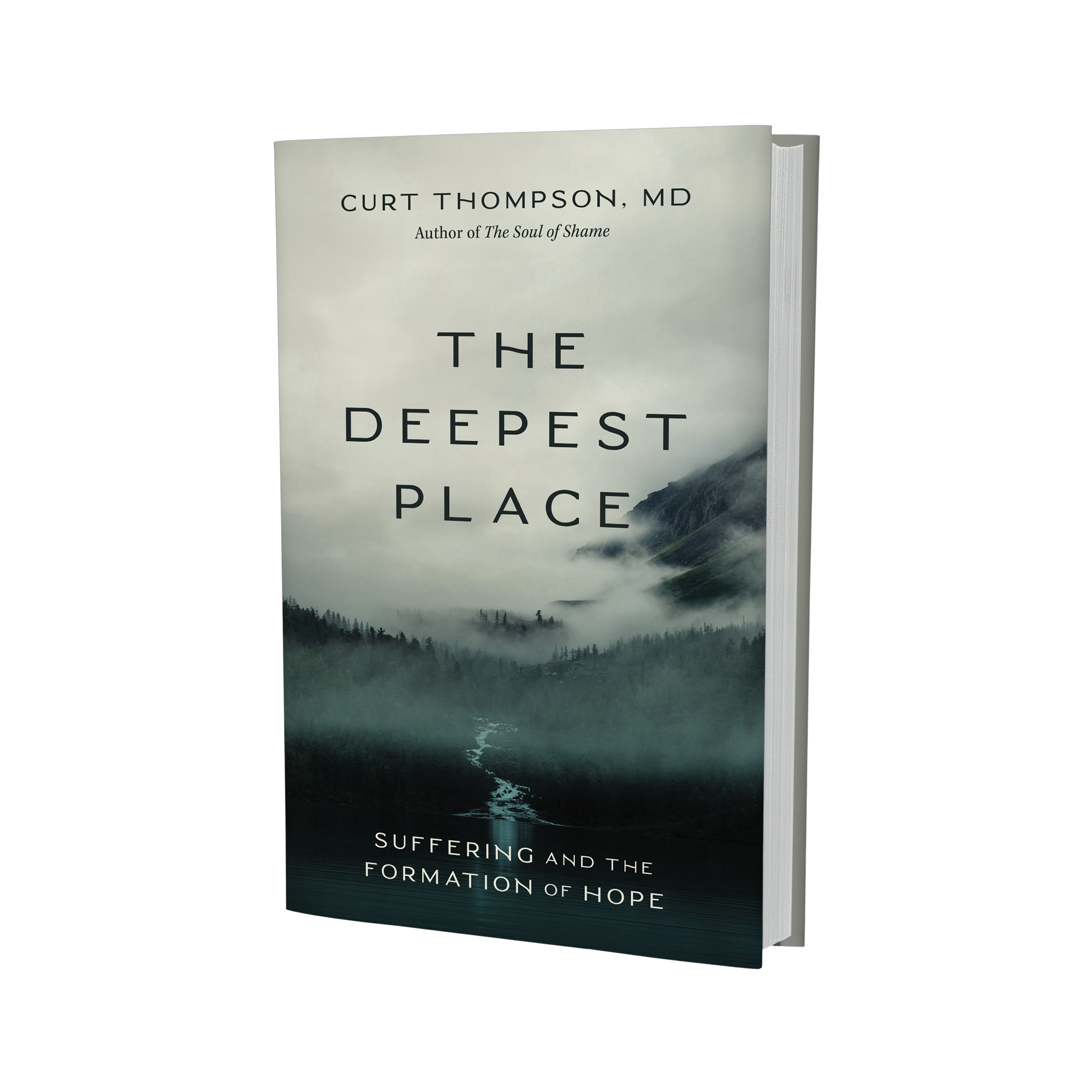What Do You Want?

May 20, 2020
“What do you want?” When you’re utterly parched, the answer to this question doesn’t take much consideration. The thirstier you get, the more laser-focused your attention becomes, drawn as it is to but one thing. Dehydration reminds us of the necessary, vitalizing role that water plays keeping us alive, a role to which, most days we remain oblivious until we begin to run dry.
And believe me, for some of us, Covid-19 has transformed our landscape into a life-sucking desert; with no easily identifiable oasis in sight, we’re not sure if the next hopeful news is real or just a mirage. Our thirst for so many things grows—work; touch; public worship; sports; eateries—desperately so in some ways, even as we take the first tentative steps toward lifting restrictions. But we know that this journey is far from over. Thankfully, this essay’s opening question can help fire our imaginations to answer it, and in so doing, properly guide us in our response to the pandemic. And perhaps, not surprisingly. For indeed, they are the first words of Jesus as recorded in the Gospel of John.
That Jesus asks this question of the disciples of John the Baptist presumes that they—like us—are people of desire, of longing. He assumes, without condemnation, that we, too, are a wanting people. How could we not be? In his view, if we ever expect to enter the kingdom of heaven, we have to become like little children. And children have no lack of wanting. Every baby’s body comes out of the uterus hungering and thirsting. For comfort. For nourishment. Newborns, infants and toddlers are bounding bundles of desire and are thoroughly unselfconscious about it. And as it turns out, this depth of desire only stops when we’re dead. The question, then, is not if we want; the question is what we want, which is exactly what Jesus asks.
But it is equally important that we realize that no matter what children want—milk, a softball glove, the car keys or marriage to his or her betrothed—the object of their desire always represents a bid for loving attachment. In fact, even when we have to say, “No.” to their requests, it matters to children that they sense that that they want something is received with attunement and validation at the very least, joy the very most. Their request, their desire is an extension of their longing, as Dan Seigel reminds us, to be seen, soothed, safe and secure. These 4 “S” words represent what children—even we adult ones—desire more than all other wants: to be known. And to be known as God longs to be known. And to be known in this way is to be loved. Loved with the joy that shouts, “You’re here!” any time we wander into the room or into someone else’s mind. Even and especially on our worst days.
But we’re not very skilled at being known. Consequently, we’re not that great at being loved. Notice, I didn’t say we’re not great at loving (although we could use a crash course or two on that as well); I said we’re not that effective at receiving love, and for myriad reasons. But the bottom line is, we can’t give what we don’t have. And when we have not received love well (sometimes because it has been offered poorly, or not offered at all), we replace it with busyness, technology, substances, sex, money, power, anxiety—all the usual suspects we have wanted and worked hard to acquire since the Garden of Eden. Before Covid-19, some of us had so many material and social needs met that we didn’t even know we needed them. More importantly, we didn’t know how much we were using all our stuff and experience to make up for the vacuity in our souls that has needed to be filled with love for longer than we knew, but that we have instead laden with other merchandise, material and otherwise.
But all of that is different now. For many of us, even those for whom material goods are still easily accessible, there is a great deal that has been stripped away by this nasty virus. And to be sure, for some of us, these things aren’t just window dressing. They are things like jobs and food and, for some, a roof over their heads. This isn’t just about my not getting to eat at PF Chang’s. For many it’s about life and death.
And here, once again, I want to draw our attention to Jesus’ words. “What do you want?” That’s right—what do you want? At this point in our journey with Covid-19, sick of it as many of us are, we might easily answer it with some permutation that allows for gatherings of 10 to 10,000 people, all touching each other as much as they like, thank you very much. As long as we also realize that, just as it was when we were toddlers, Jesus knows that telling him what we want is just another way for us to tell him how desperately we want to be loved, to be seen, soothed, safe and secure. We want him to love us, and for others to do the same, that being what the sum total of our stuff and gatherings are all about. But Jesus won’t force us to tell him that, any more than he forced John’s disciples to have the right answer at the ready. He’ll wait until we have exhausted all our other resources, and then exhausted ourselves, like we did when we were toddlers and our parents put us to bed.
If nothing else, Covid-19 has provided us with the opportunity, without our even having to ask for it, to find ourselves, as Bill Haley has reflected, confined to ourselves, with “little else” but God’s love that remains. We’re like toddlers, but more like tired and hungry ones. But Jesus isn’t impatiently waiting for us, in our distress and missing our distractions as we are, merely to give him the right answer before he acts on our behalf. No, he is waiting for us to allow him to love us. And in permitting him to do so—again, something far easier said than done—we discover that the object of our desire isn’t a what after all. It’s a who.
Jesus is waiting for us to receive him. But for many, this has never quite been a truly, embodied, right-brain experience, one that is felt and sensed, like the ones we used to have before coronavirus, when we greeted our best friends with a hug. It has only remained in the confines of our left brains, persisting as an idea, but possibly not much beyond that. Hence, we turn to our substitutions. But in the time of Covid-19, for many of us, our not having what we usually use to comfort ourselves, we are now more parched than ever, thinking that what we want is to dine in our favorite restaurant, when what we really want is to be loved. But how do I practice experiencing that?
Here are four straightforward, not-so-easy steps:
- Twice each week, tell someone for whom it is true that you love them, and give them two concrete reasons why. Take at least ten minutes to do this, and schedule a time to do it.
- Once a week, ask someone that you trust and love to tell you why they love you. Invite them also to give you concrete, measurable examples. (This one will be challenging, but necessary; we have very little practice actually receiving love, and this will give your brain the opportunity to do just that. Don’t worry that is seems at first glance to be self-serving. It gives the one you ask the opportunity to love as well.)
- Three times a week, choose a story from the gospels in which Jesus demonstrates his love for someone, say the healing of Bartimaeus in Mark 10 or Jesus’ response to Mary’s anointing of him in John 12. Imagine being there and Jesus including you in the conversation. Then, write down what he said to you and write further reflections on what you heard him say.
- Two to three times a week, meditate on Luke 3:22, using this guide from my website. Allow yourself to sit with, to “be” in the Father’s presence as he delights in being in yours.
Even though we don’t know when this coronavirus season will be over, one thing we do know is that it is giving us the opportunity to practice allowing God’s love to take up residence in our hearts in ways that heretofore we simply have not had the time or the space to permit. In so doing, not only may we realize our longings being met, we will become people we hardly recognize. Should we dare to allow God to love us as these times are making possible, I am confident that we will eventually discover that what we desire—living, breathing, joyfully embodied love—is also what we have become.
And we’ll know that it’s what we’ve always wanted.
